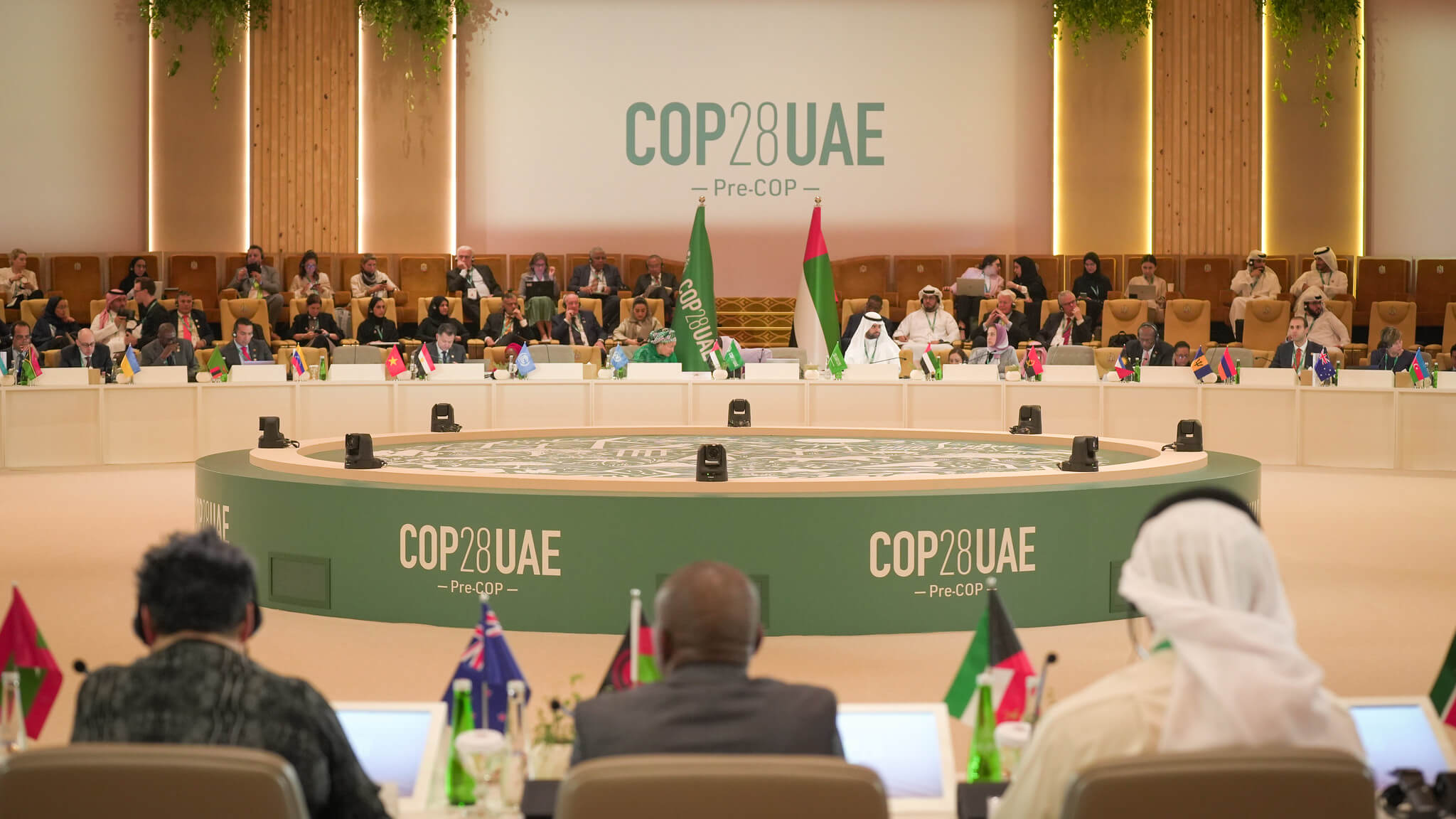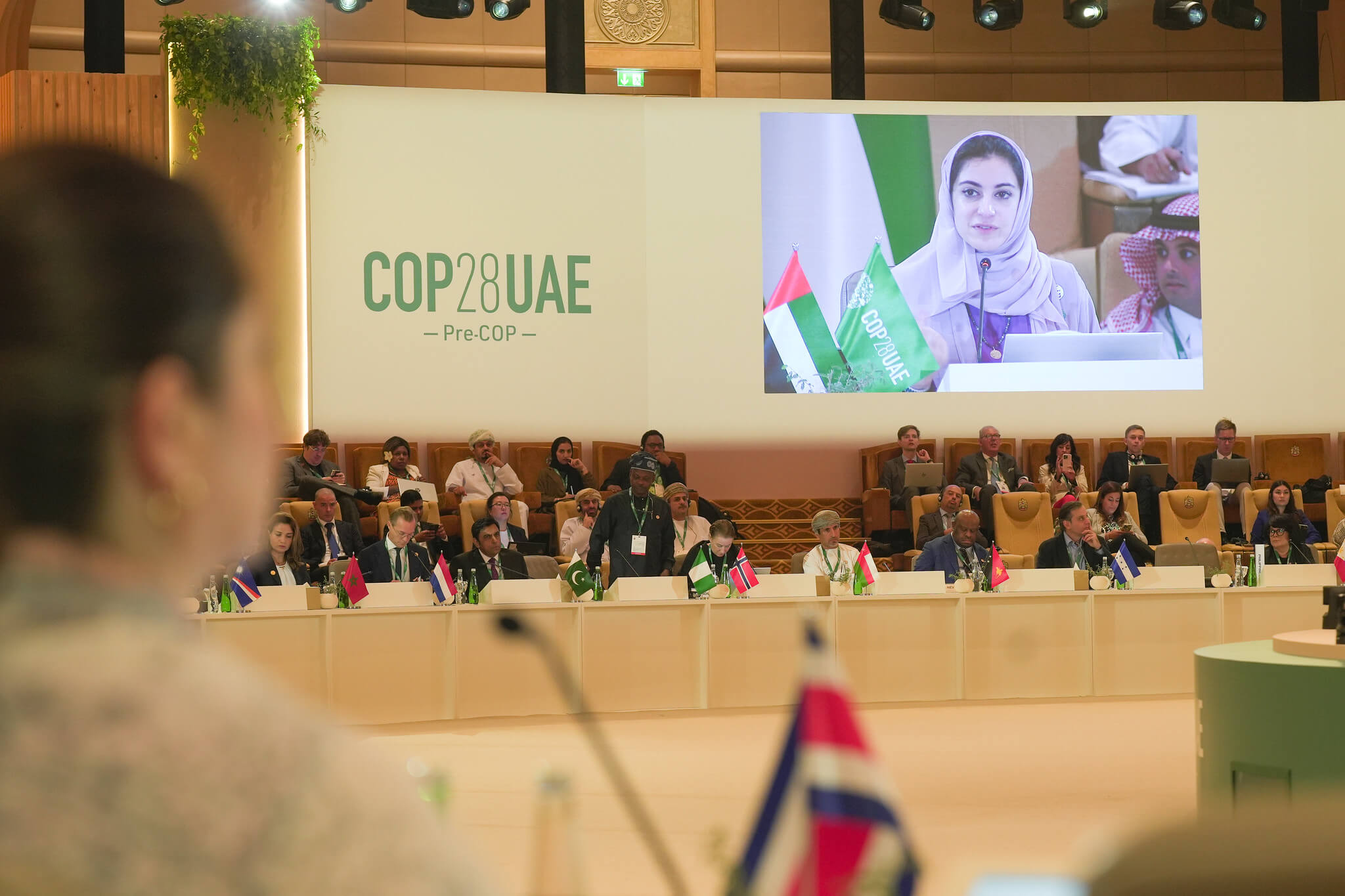
The UN Climate Change Conference (COP28) in Dubai marked a historic step forward when the final text of the Global Stocktake included language on fossil fuels. The Global Stocktake is a UN-led process that gives the world a clear review of global progress and shortcomings on climate action and rallies world leaders to raise their ambition. Throughout COP28, media coverage was dominated by speculation over how the agreement would address fossil fuels. Ultimately, the Global Stocktake included a call to “transition away from fossil fuels in energy systems.” The release of the final text sparked debate over whether this phrasing was a significant accomplishment or a decision that fell short of what was needed. However, amid the discourse around fossil fuels, renewable energy commitments, and COP politics, the Global Stocktake also included several significant wins that were overlooked.
In the two years leading up to COP28, the governing body overseeing the Paris Agreement and Global Stocktake produced global technical assessments of climate action and hosted exhaustive and inclusive discussions with country delegations and civil society actors. These dialogues aimed to accelerate progress in mitigation, adaptation, and means of implementation and support — all in light of equity and the best available science. The final text, released at COP28, sets the pace of change for the next two years as countries develop new national climate action plans — including Nationally Determined Contributions (NDCs) and National Adaptation Plans (NAPs) — ahead of the 2025 submission deadline.
Energy systems, and therefore fossil fuel use, comprise only a fraction of the most essential takeaways from the Global Stocktake. Thanks to tireless input from iGST members and other global advocates, the final text highlights other crucial outcomes that received less publicity — such as the importance of conserving, protecting, and restoring nature; decarbonizing the transportation sector; and reducing methane emissions. These outcomes are crucial pieces of the climate puzzle to achieve a more sustainable world.
A new era of global forest protection
Coming out of COP28, the final text of the first Global Stocktake recognizes the critical need to conserve, protect, and restore nature and ecosystems. It emphasizes enhanced efforts to halt and reverse deforestation and forest degradation by 2030. Additionally, it highlights the importance of financial investments supported by policy incentives to promote conservation and sustainable forest management.
The inclusion of this priority is especially important given the impacts of rapid degradation and deforestation globally. Despite global commitments to forest protection, the tropics lost 10% more primary rainforest in 2022 compared to 2021, according to the Global Forest Watch. The loss of tropical, old-growth forests in 2022 totaled 4.1 million hectares, emitting 2.7 gigatonnes of carbon dioxide, equivalent to India’s annual fossil fuel emissions.
The language of the final text underscores the contributions forest conservation and protection efforts can make toward achieving the Paris Agreement temperature goal of keeping global warming well below 2° Celsius. Moreover, it highlights the people-centered co-benefits of halting and reversing deforestation and forest degradation, including accelerating sustainable development and eradicating poverty.
A boost for zero-emission transportation
The transportation industry — including aviation, maritime shipping, and road transport — requires steep decarbonization, as most transport still relies on fossil fuels. Overall, carbon dioxide emissions from transportation have increased by more than 70% since 1990. The industry now accounts for more than 20% of fossil fuel-related CO₂ emissions worldwide, underscoring the need for zero-emission transportation.
The Global Stocktake’s call to decarbonize the transportation sector accentuates, once again, the importance of transitioning to electric vehicles (EVs), scaling infrastructure, and investing in clean fuels for the maritime shipping and aviation sectors. This transition requires a global effort to recognize and address the need for energy and resource efficiency in the transport sector. Collaboration across sectors is also necessary to achieve the policies and investments that will transform the road transportation industry. To deliver the goals of the Paris Agreement, the world needs to swiftly embrace zero-emission transportation, as recognized by the outcome of the first Global Stocktake.
Public and private sector leaders in emerging economies are already seizing the opportunity to transition to EVs to create and shift local jobs, reduce pollution, and solidify their roles in the global supply chain. Supporting local leadership will be key to decarbonizing the transportation sector. In addition, increasing funds for clean fuel research and development can boost the green transition for the maritime shipping and aviation industries.
Addressing the problem of methane
Methane has often been overlooked in the global sustainability conversation, even as scientists have repeatedly called for the radical reduction of methane emissions. In the United States, research conducted by the Environmental Defense Fund found that the U.S. oil and gas industry was emitting at least 13 million metric tons of methane a year — about 60% more than the Environmental Protection Agency estimated at the time. This finding underscores the significance of the Global Stocktake’s inclusion of methane in its call to action, putting additional pressure on the fossil fuel sector to address its emissions issues. Moreover, the International Energy Agency estimates that emissions in the energy sector are underreported by 70%, which makes identifying methane leaks and the lack of transparency around these emissions a global problem.
In addition, according to the International Energy Agency, agriculture is the largest anthropogenic source of methane emissions. The Global Stocktake’s emphasis on building sustainable land-use management and agricultural practices reinforces the importance of reducing the environmental impacts of these activities, particularly non-carbon emissions like methane.
The final Global Stocktake text highlighted the need for methane emissions reductions, which supported the Global Methane Pledge announced at the conference in 2021. World ministers welcomed transformational national actions and catalytic grant funding to help countries achieve at least 30% methane emissions reduction by 2030. Commitments and language in the Global Stocktake are a first step; countries must now implement policies that will deliver on their promises to reach the 30% goal by 2030, as time is quickly running out.
A multi-sectoral approach to accelerate climate action
The call to world leaders is clear after this first Global Stocktake. Across the globe, the public and private sectors must work together to invest in clean technology, protect our natural resources, and swiftly eliminate our reliance on fossil fuels. The road to COP29 and COP30 requires unprecedented political will as countries develop new climate action strategies through NDCs and NAPs. The following two years provide a unique and critical opportunity to accelerate action on reducing greenhouse gas emissions, improving resilience and adaptive capacities, and ensuring adequate and available finance. Furthermore, the Global Stocktake stresses the importance of including local communities and experts while planning and implementing multi-sectoral strategies to ensure all voices are included when deploying solutions for a sustainable future.


